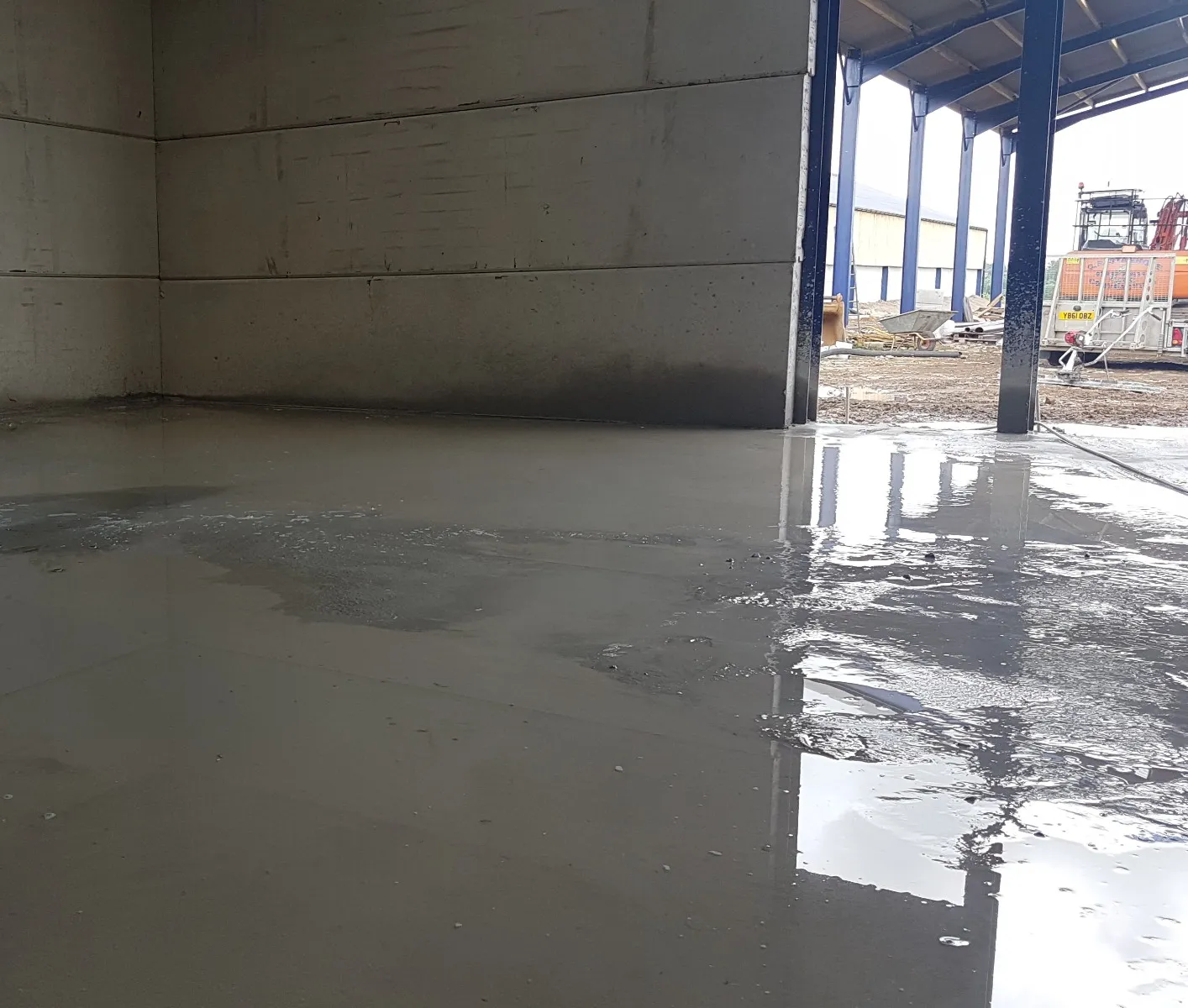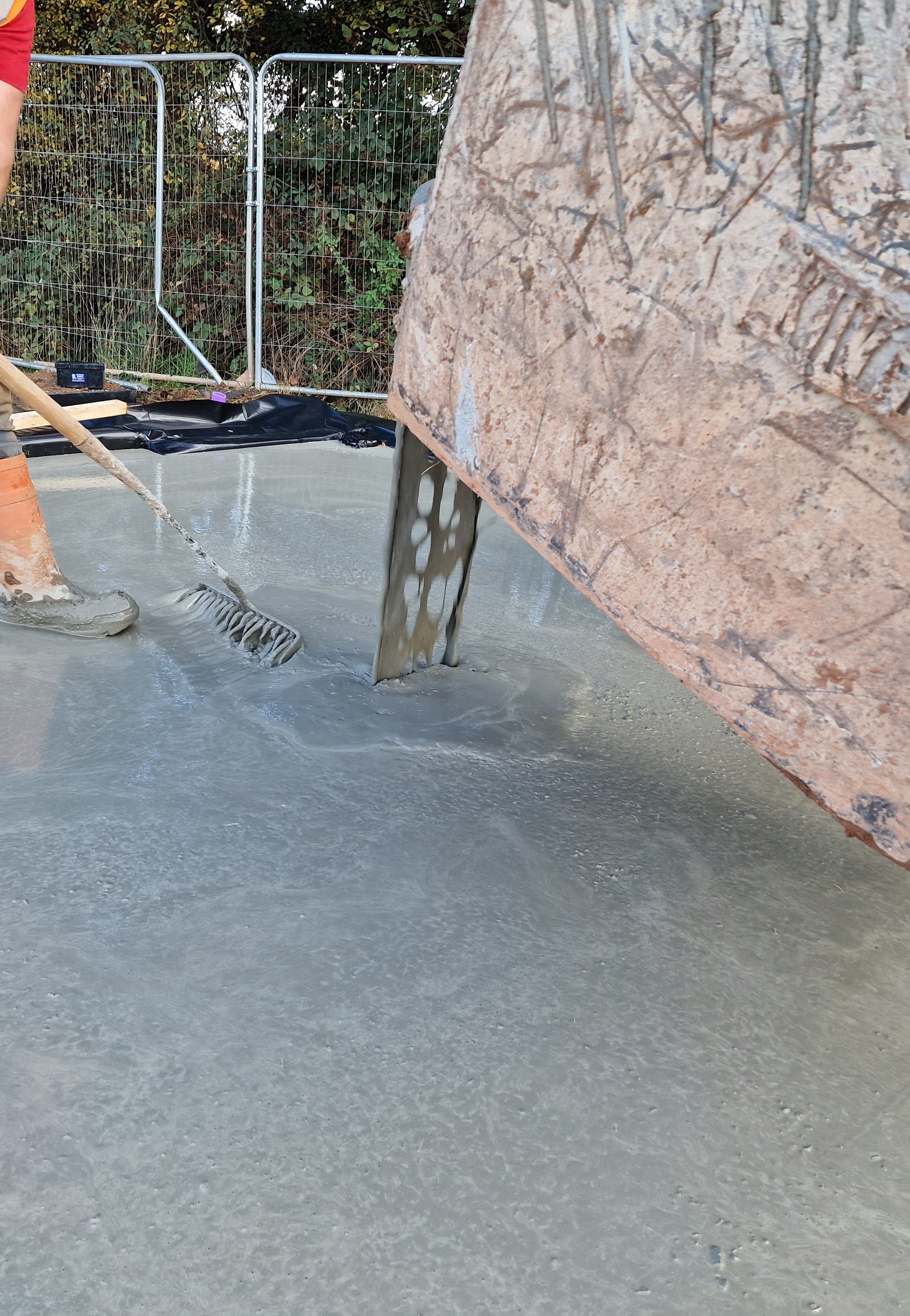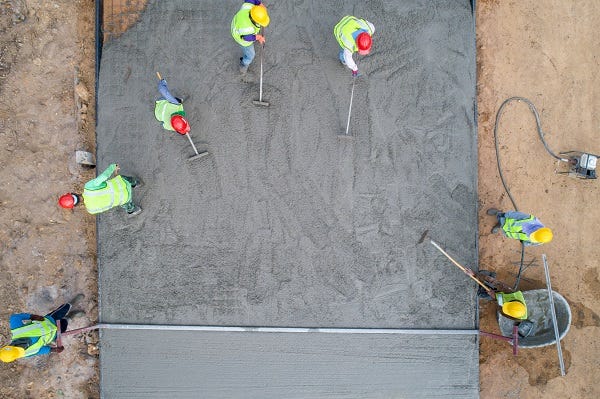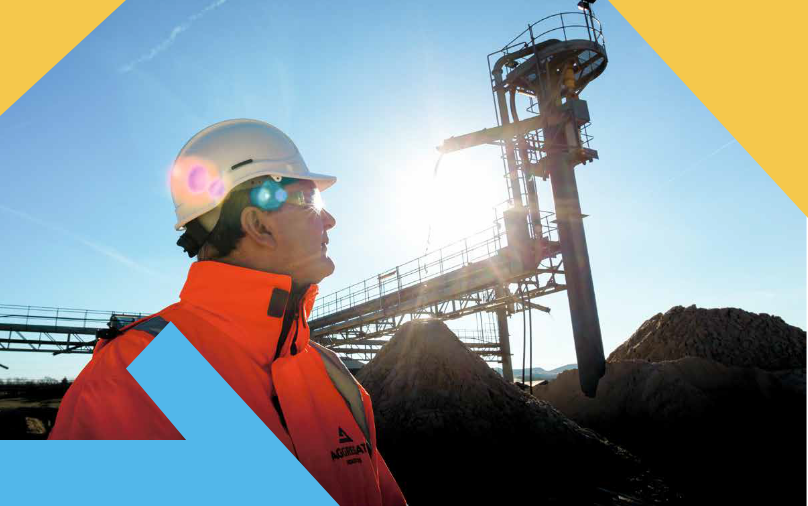If you're a keen amateur builder, you'll know that working with concrete can be a bit of a guessing game
Understanding Wet Concrete and the Advantages of Waterproof Concrete
Concrete is a fundamental material in construction, known for its strength and durability. However, its interaction with water, both during the mixing process and as a structural component, is a critical aspect that affects its quality and longevity. This article will provide a deep dive into the causes and solutions for wet concrete and the benefits of waterproof concrete.
Wet Concrete: Causes and Solutions
Water is essential in concrete formation, mixing cement, aggregate, and sand. It activates the cement's chemical reactions, forming a hard, durable material. However, the correct water proportion is crucial. The ideal mix should be workable and maintain its shape without collapsing.
The Problem with Excess Water
Excessive water in concrete mix reduces the strength of the finished product, making it prone to cracks and damage. A high water-to-cement ratio leads to larger capillary pores in hardened concrete, reducing strength and increasing susceptibility to environmental damage. Excess water can also cause the separation of aggregate and sand from the cement, weakening the structure.
Tips for Preventing Overly Wet Concrete
Now that you know the risks of working with overly wet concrete, here are some tips to help you maintain the perfect balance of water in your concrete mix:
Accurate Measurement
When mixing your concrete, always follow the manufacturer's recommendations for water-to-cement ratios. Measure the water and cement accurately to ensure the right consistency.
Slump Test
A slump test is a simple way to determine the consistency of your concrete mix. By filling a cone-shaped mould with the mix and then removing it, you can measure the amount the concrete ‘slumps’ or falls. The less the concrete slumps, the stiffer and less workable the mix is. So adjust the water content as needed to achieve the desired slump.
Weather Considerations
On hot or windy days, concrete can dry out more quickly than usual. Be prepared to add a little extra water to your mix to compensate for evaporation.
Concrete Additives
Some concrete additives can improve workability without the need for additional water. These can help you achieve a more workable mix without compromising the final product's strength.
Remedies for Overly Wet Concrete
If you find yourself in a situation where you've already mixed your concrete too wet, don't worry. There are still options, and here's what you can do.
Add Dry Ingredients
One of the simplest solutions is to add more cement, aggregate and sand to your mix. This can help absorb some of the excess water and bring your mix back to the ideal consistency.
Add Water-Reducing Admixtures
Adding a water-reducing admixture to your mix can help lower the water-to-cement ratio without affecting the concrete's workability. This can also improve the final product's strength and durability.
Remove Excess Water
If you notice water pooling on the surface of your concrete, try using a sponge or cloth to gently remove it. This can help prevent the formation of weak spots in your finished project.
What is Waterproof Concrete?
Waterproof concrete is a type of concrete that has been specially formulated to withstand water and moisture. It’s created by adding waterproofing agents to the concrete mixture during the mixing process. These agents create a barrier that repels water and prevents it from penetrating the concrete.
Isn’t Concrete Already Waterproof?
It's a common misconception that concrete is naturally waterproof as traditional concrete is porous and allows water seepage, leading to damage.
When concrete is exposed to moisture for prolonged periods, it can become damp. This dampness can cause a variety of problems, such as mould growth, deterioration of the concrete and any embedded steel reinforcement. It can also weaken the internal structure of the concrete, which can be dangerous in certain situations.
Benefits of Waterproof Concrete
Moisture Resistance: Prevents water penetration, protecting structures from moisture-related damage. This can help extend the life of the structure and save money on repairs and maintenance in the long run.
Versatility: Suitable for various applications, including swimming pools and commercial buildings. This makes it a popular choice for builders and contractors who need a reliable and durable material for their projects.
Durability: Withstands heavy loads and wear and tear. This makes it ideal for use in high-traffic areas and structures that need to support heavy weights.
Energy Efficiency: Acts as a barrier against water and as a result it can help regulate temperature and prevent energy loss. This can lead to lower energy bills and a more sustainable building.
Commercial Applications of Waterproof Concrete
Water Storage Structures: Ideal for water tanks, reservoirs, and treatment plants.
Domestic & Commercial Structures: Used in basements, car parking garages, and elevator pits.
Marine Structures: Its ability to withstand the effects of saltwater and waves makes waterproof concrete ideal for piers, docks, and breakwaters.
Infrastructure Protection: Applied in tunnels, bridges, and highways.
Swimming Pools and Pool Decks: Prevents leaks and water damage.
Retaining Walls and Cellar Floors: Protects against heavy rainfall, flooding, and moisture.
Mitigating Weather-Related Risks
Laying concrete in winter presents several challenges and risks that need to be carefully managed to ensure the quality and durability of the concrete. Here are some key risks to consider:
Freezing Temperatures: Concrete needs to be protected from freezing until it reaches a minimum strength, which typically takes about 48 hours. If concrete freezes before reaching this strength, its long-term strength can be significantly reduced.
Slow Curing Process: Cold weather slows down the hydration process of concrete, which is essential for its hardening and strength development. This can lead to a longer curing time and may delay construction schedules.
Moisture Problems: Snow, ice, and rain can alter the water-cement ratio of the concrete mix, affecting its strength and durability. Excess water can also lead to freezing and thawing issues.
Improper Frost Protection: Inadequate insulation or heating can lead to uneven curing and potential damage to the concrete.
Flooding Risks: In areas prone to heavy rainfall or rapid snowmelt, the risk of flooding can be significant. Flooding can compromise the structural integrity of freshly laid concrete and lead to long-term damage.
To reduce these risks, you can use a few methods, like heated enclosures or add special ingredients to the concrete mix. Another great option is to use a type of concrete made for cold weather, like Hydromedia concrete. Hydromedia is really good at letting water pass through and managing it well, which makes it a great choice for dealing with the challenges of winter weather.
Enhanced Drainage: Hydromedia's permeable nature allows for rapid drainage of excess water, reducing the risk of water accumulation and flooding. This can be crucial in preventing damage from heavy rainfall or melting snow.
Reduced Moisture-Related Issues: By effectively managing surface water, Hydromedia can help maintain the appropriate water-cement ratio in the concrete mix, ensuring the strength and durability of the concrete even in wet conditions.
Mitigating Freezing Risks: The quick drainage capability of Hydromedia may reduce the likelihood of water freezing within the concrete structure, thereby minimising the risk of freeze-thaw damage.
Faster Surface Drying: The permeable nature of this concrete type might allow for faster drying of the concrete surface, potentially reducing the curing time in cold and damp conditions.
Conclusion
Understanding the role of water in concrete is essential for ensuring the quality and longevity of construction projects. While managing the water content in traditional concrete is crucial to prevent weakening, waterproof concrete offers an innovative solution for projects where water exposure is a concern. Its unique properties not only provide a watertight barrier but also enhance the structure's durability, making it a wise choice for a wide range of applications. Additionally, Hydromedia concrete, with its exceptional permeability and water management capabilities, presents a forward-thinking solution for areas prone to heavy rainfall, flooding, or other water-related challenges. It effectively addresses the specific needs of such environments, further broadening the scope of innovative concrete solutions. The initial investment in waterproof and Hydromedia concrete is offset by their long-term benefits, making them valuable additions to the construction industry.
Interested in exploring the best concrete solutions for your next project? Don't hesitate to reach out to our experts at Concrete2You for tailored advice and high-quality concrete solutions that meet your specific needs.
Concrete Slump Test


Wet Concrete...too wet!




Frequently Asked Questions
We're here to help
Got questions?
Try our frequently asked questions, how to guides and technical support for specialist advice.
Live chat is here!
Need a quick answer? Why not reach out to our expert teams in your area.
Talk to us
We would love to hear from you! Send us an email for further support, feedback or guidance.





